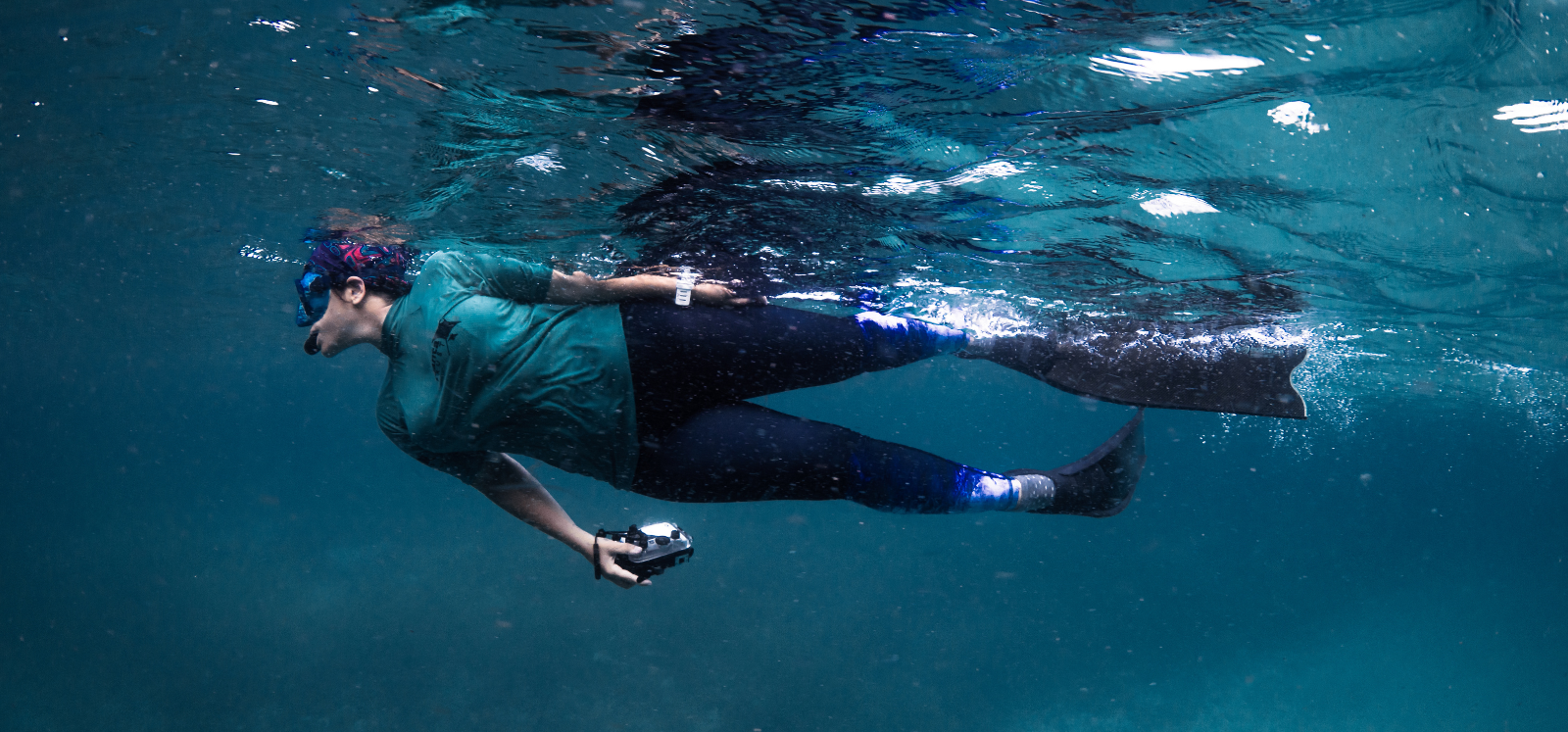Farah Hamdan: PhD Student, QUB and Associate Researcher, Galapagos Science Center
BSc Environmental Management and MSc Ecological Management and Conservation Biology graduate, Farah Hamdan, shares her post grad journey from Project Manager in the Maldives to studying a PhD in marine biology.

What's been your career path post graduation?
- Research Assistant, School of Biological Sciences, Queen's University Belfast, 2021 - 2022
- Project Manager, The Manta Trust, Raa Atoll, Maldives, 2022 - 2023
- Dive and Conservation Manager, Garuda Dive Resort, Nusa Penida, Indonesia, 2021 - 2025
- Associate Researcher, Galapagos Science Center, Ecuador, 2023 - Present
As a project manager and researcher in the marine conservation field, no two days ever looked quite the same! One of the things I loved most about the role was the variety — it kept me constantly learning and adapting. During field seasons, I spent a lot of time out in the field, often onboard research vessels for days or even weeks at a time. My work involved freediving and scuba diving to observe marine species, deploying underwater cameras, tagging animals to track their movements, and collecting important ecological data. I also often conducted socio-economic surveys and community engagement initiatives to understand human–ocean interactions and how conservation measures could be tailored to support both biodiversity and livelihoods.
When I wasn’t in the field, my role shifted to focus more on the behind-the-scenes aspects of conservation work. This included analyzing data, writing technical and scientific reports, applying for research funding, and preparing outreach materials. I also regularly presented our findings to various audiences — from local stakeholders and NGOs to international conferences.
Of course, the role had its challenges too. Fieldwork could be physically demanding and unpredictable, with long hours, difficult weather conditions, or equipment failures. And grant writing, while essential, can be a long and competitive process. But overall, the mix of fieldwork, data, people, and impact made it an incredibly fulfilling career.
Why did you choose to pursue further study?
Improved job opportunities and furthering my academic career. After my PhD, I'm hoping to continue working in the marine research field and building bigger projects in the same field!
Did you complete a work placement as part of your programme at Queen’s?
Yes, I did my placement at the Charles Darwin Foundation in the Galapagos, where I ended up making the contacts that would shape my later career! Read more about my placement here.
What other key steps at Queen’s do you think helped develop you most - and impacted on your early career path?
The thing I valued most about my time at Queen's was the opportunities to network and connect with the academics and research staff on a one-on-one basis. They helped guide me and provided work opportunities that would never have been possible otherwise!
Looking back – how would you advise your first year self to make the most of your time at Queen’s?
Show up to class every day that you can! Ask questions, talk to the academics, and try to be as involved as possible. This will create contacts for you that will last your entire career!! (Which it did for me, and I'm immensely grateful to the QUB academics that helped guide and shape my career!)
Farah Hamdan
PhD Student, QUB and Associate Researcher, Galapagos Science Center
BSc Environmental Management and MSc Ecological Management and Conservation Biology Graduate
